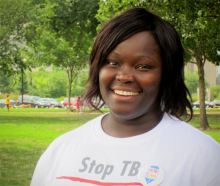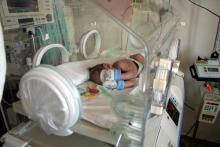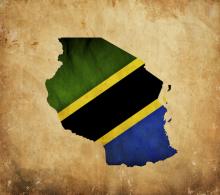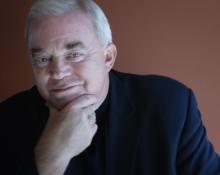Health Care

I SPENT MY first year after college doing voluntary service in Portland, Ore., serving as the hunger action coordinator for a small Catholic organization called the Oregon Center for Peace and Justice. That fall, I joined a group of church anti-hunger activists from around the state in a meeting with our Republican U.S. senator, Mark O. Hatfield. We asked him a number of questions, and urged his continuing support for food- and hunger-related legislation.
When it came my turn, I said, “Senator, how do you reconcile the compromises that you inevitably have to make as a politician with the ideals you hold as a Christian?” In his reply, Sen. Hatfield pointed to the difference between compromises of principle—which he said he would never make—and the tactical compromises necessary to make progress in a pluralistic society. Without the latter, the senator said, politics is nothing but an ideological shouting match.
These days, it’s clear that most far-right Republicans, including those in the party’s leadership, take a slightly different approach to inter-party cooperation than did the late Sen. Hatfield. They seem to see it less as building bridges for the sake of governing a varied society and more as sleeping with the enemy.
There’s probably no better recent example than the issue of health care. The Affordable Care Act, aka Obamacare, is the law of the land—passed by Congress, signed by the president, and ruled constitutional by the Supreme Court. But none of those legal niceties seem to matter to the raw-meat GOP. Their attempts to circumvent or undercut the law range from the inane (such as 67 failed tries—count them: 67—to overturn the ACA by congressional vote) to downright bullying.

THOSE WHO BELIEVE in freedom and work for justice in our world sometimes grow nostalgic about the 1960s in this country, looking back at the leadership that emerged from African-American churches in the South, drawing allies from outside the region and beyond the bounds of creed. America has a vivid, living memory of faith inspiring public justice. But the civil rights movement did not just happen. The March on Washington and Selma were moments in history made possible by movements that grew out of hard work over the course of decades.
This summer in North Carolina, “Moral Mondays” at the state General Assembly have drawn thousands of weekly protesters, more than 800 of whom have been arrested for engaging in mass civil disobedience. A few weeks into the campaign, some elders started saying it felt like the ’60s all over again. The Washington Post highlighted NAACP state chapter president Rev. William Barber’s dynamic preaching. The New York Times pointed to the significance of hundreds of clergy uniting to lead the movement. MSNBC andFox News set up their satellite trucks. Week after week, thousands of people kept coming.
When reporters asked why, participants explained the concerns: 500,000 people denied health care when the legislature refused federal funds for Medicaid expansion, 70,000 people whose unemployment insurance was cut off, thousands of poor families denied an earned income tax credit, wholesale repeal of the hard-won Racial Justice Act, and diversion of public education funds through a voucher program. The reasons were legion, but they were not, by and large, unique to North Carolina. They were the sort of changes the American Legislative Exchange Council (ALEC) promotes at the state level throughout the country. How, then, did this grassroots resistance movement emerge in North Carolina?

Old News: U.S. spends more on healthcare, gets worse results
We Americans are first in the world when it comes to per capita healthcare spending, and yet we don't live as long (we're in 51st place), more of our mothers die in childbirth (we're in 47th place), more of our babies die in their first year of life (we're in 50th place) ... well, you've seen the statistics, and they aren't pretty.
Interesting Spin on Old News: Medical and social spending should be seen as a whole
"The truth is that we may not be spending more," wrote Elizabeth H. Bradley and Lauren Taylor in a 2011 New York Times article — "it all depends on what you count." If you count "the combined investment in health care and social services," such as "rent subsidies, employment-training programs, unemployment benefits, old-age pensions, family support and other services that can extend and improve life," we're in 10th place among developed nations.

The Global Fund has a plan to win the fight against the three major diseases of poverty—and it's working.
House Speaker John Boehner promised today that the House will hold a vote over whether to delay a key part of Obamacare. Politico reports:
The GOP’s message is that President Barack Obama is choosing big business over ordinary Americans after the White House postponed a provision that requires employers provide health insurance for their workers.
The Speaker also called the Administration's actions "wrong" and "outrageous." Read more here.

After I blogged about expensive American childcare earlier this week, my daughter Molly directed me to a March of Dimes web page showing the extremely high rate of preterm births in the United States. "Born Too Soon," a 124-page report issued in 2012, "ranks the U.S. 131st in the world in terms of its preterm birth rate of 12.0 per 100 live births, almost tied with Somalia, Thailand, and Turkey. Nearly half a million babies are born too soon in the U.S. each year."
According to a 2009 report from the Centers for Disease Control, "the main cause of the United States’ high infant mortality rate when compared with Europe is the very high percentage of preterm births in the United States" — in spite of the fact that "infant mortality rates for preterm (less than 37 weeks of gestation) infants are lower in the United States than in most European countries." In addition, "infant mortality rates for infants born at 37 weeks of gestation or more are higher in the United States than in most European countries."
THE CONGREGATIONAL HEALTH NETWORK began with a simple request from the largest hospital network in Memphis to a group of local pastors: Help us take better care of your people.
Ten years ago, officials at Methodist Le Bonheur Healthcare were worried that chronic diseases such as hypertension, diabetes, and obesity were threatening the well-being of local residents and sending health-care costs through the roof.
“People in their 20s were coming to the emergency room in end-stage renal failure,” said Rev. Bobby Baker, a Baptist pastor and director of faith and community partnerships at Methodist Healthcare. “That person is going to be using critical care resources for the rest of their life.”
Hospital officials knew something had to change. They wanted to focus on preventive health care—getting people in to see their doctor long before they were in a crisis. So in Memphis, a city where faith remains a powerful force and more than 60 percent of the population has ties to a religious group, they turned to churches for help. It started small, with a group of about a dozen pastors at churches near Methodist South hospital, in the city’s Whitehaven neighborhood. Those pastors recruited church members to serve as liaisons to the hospital, while the hospital assigned staff to work with churches. That small pilot, first called the Church Health Network, began in 2004.
Two years later, Methodist CEO and president Gary Shorb, along with Rev. Gary Gunderson, the former senior vice president for Methodist’s faith and health division, decided to expand the project system wide. That was the only way to make a significant impact on health outcomes, said Baker. “The thought was that it can’t be a pilot, it can’t be a research project—it really has to be broad reaching,” he said.
JASON COOPER LOOKS out at the audience gathered in Restoration Church and asks, “Is it God’s will to heal?”
The former art school classroom, where the Pentecostal Dover, N.H., congregation meets, is nearly full, even though it is a Thursday evening in April. In addition to the 70 or so regular members who have come to hear Cooper preach, there are nearly a dozen visitors. One woman leans heavily on a cane. Another can’t turn her head from side to side and needs neck surgery.
They are casualties of slow research and expensive health care. According to the Kaiser Family Foundation, a nonprofit health-care policy think tank, health expenditures have increased 10-fold in the past 30 years. Though some health- care increases can be attributed to longer life spans, the high costs of drugs, hospital stays, and doctor visits have been compounded in the wake of the recession.
A young woman tensely watches Cooper as if he might explode at any minute. No one knows exactly what he will do. The audience fidgets in response to his question. Cooper, with his soul patch, slick black haircut, white button-down shirt, and stone-washed jeans, looks a little like a Vegas magician.
But Cooper is a traveling faith healer.
"Obamacare" continues to be at the forefront of our nation’s health care epidemic. A recent report from PwC shows falling numbers within the system that are due to affect the overall cost of health care policies next year. Despite PwC’s report that the costs of health care are lower than years prior, critics claim that costs still aren’t where they need to be. The Associated Press reports:
For years U.S. health care spending has grown much faster than the overall economy and workers' wages, but since the recession those annual increases have slowed dramatically. The debate now is whether that's a continuing trend. The answer will be vitally important, not only for companies and their employees, but for taxpayers who foot the bill for government programs such as Medicare, Medicaid and Obama's coverage expansion
Read more here.
The first draft of form was confusing and complex so the Obama administration has created a simplified application for healthcare. The Associated Press reports:
Details to be released Tuesday include a three-page short form that single people can fill out, administration officials said. Medicare chief Marilyn Tavenner, also overseeing the rollout of the health care law, called it "significantly shorter than industry standards."
Read more here.

I spent an entire day a couple of months ago in an outpatient clinic (I'm fine; thanks for asking). I met a lot of nurses, and every one of them was excellent.
When Velda came to take away the remains of my lunch, I offered her my untouched can of ginger ale.
"I don't drink soft drinks," she replied. Since I rarely do either, we started chatting.
Velda grew up in Tanzania, moved to Belgium, spent several years in London, and finally came to the United States. She returns to Tanzania regularly, and she is not happy with what she sees.
"I grew up eating lots of vegetables," she told me. "We might have had ice cream once every three years. But now people are eating American-style junk food. They don't know it's not good for them."

CHICAGO — Religious affiliation may be on the wane in America, a recent Pew study asserts, but you wouldn’t know it walking into the storefront near the corner of West 63rd Street and South Fairfield Avenue.
Inside a former bank in a neighborhood afflicted with gang violence, failed businesses and empty lots, a team of volunteers drawn by their religious faith is working to make life better for Chicago’s poorest residents.
The free medical clinic has expanded its hours; 20-something college graduates are clamoring to get into its internship program; rap stars swing by its alcohol-free poetry slams; and the budget has increased tenfold in the past decade.
The storefront belongs to Chicago’s Inner-City Muslim Action Network (IMAN) and it is part of a wave of new Muslim institutions emerging at an unprecedented pace. More than a quarter of the nation’s 2,106 mosques were founded in the last decade, according to a recent University of Kentucky study, and new social service organizations, many of them run by 20- and 30-something American-born Muslims, are thriving as never before.

In the dark days of Advent, we wonder when the birth pangs will end: Will light break into the darkest corners of our hearts, our families, our lives? Will God—can God—take the twisted sinew of our warped world and redeem it? Will we—can we—hold on through the night? Can we trust that light to come? These are the questions of Advent.
As we enter the season of Epiphany, new questions arise: Will we allow the light that has broken forth to illuminate the darkest corners of hearts, our families, and our lives? Can we—will we—follow Jesus as he untwists the mangled metal of our shattered souls ... and redeems it? Can we—will we—trust the light or will we hide from it? These are the questions of Epiphany.
The light of Epiphany illuminates in two directions: It flashes inward, revealing our twisted and fragmented souls, and it flashes outward, revealing the carnage and consequences of the lies our world has embraced and used to craft public policy, the lies we have believed and reinforced through our complicit acceptance, and the truth we must speak.
As we enter 2013, we look back and see that over the past four years much public good was done. Remember: The Lilly Ledbetter Fair Pay Act made it easier for women to fight pay discrimination. Remember the drama when Congress passed the Affordable Care Act and the Supreme Court upheld it, creating a path for tens of millions of Americans to finally receive health care. Remember the image of the last troops leaving Iraq.
The Supreme Court's nearly split decision on the new health care law is mirrored by the American public, according to a new survey.
On Thursday the high court upheld most of the Affordable Care Act, a massive health care overhaul often considered President Obama's signal legislative achievement.
A poll taken days before the high court's ruling found that 43 percent of Americans said the court should not overturn the law, and 35 percent hoped it would.

On Thursday, the Supreme Court ruled that the federal government does hold the constitutional power to mandate that most American's purchase health insurance or pay a penalty. This power is maintained in Congress’s ability to levy taxes.
The justices also ruled that the federal government does hold the constitutional power to expand Medicaid, making more people eligible to receive the benefit, but, like the original Medicaid law of 1965, states can opt out of the expansion if they so choose.
What does this mean? And what does this mean for Jesus followers?

Religious groups and social conservatives are reacting to the Supreme's Court's historic ruling that largely upholds President Obama's health care law, the Affordable Care Act.
Sr. Carol Keehan, president and chief executive officer of the Catholic Health Association of the United States (CHA):
"We are pleased that, based on an initial read of the ruling, the ACA has been found constitutional and will remain in effect. CHA has long supported health reform that expands access and coverage to everyone. We signed onto amicus briefs encouraging the Court to find in favor of the ACA’s individual mandate and the Medicaid expansion. As the ruling is examined, Catholic-sponsored health care providers will continue to lead health care transformation — finding new and better ways to provide compassionate, high-quality care while strengthening the communities we serve."
The Catholic Bishops of the United States urged Congress and President Obama to repair, not replace, the health care law so that it covers immigrants, includes stronger conscience protections, and ensures that it will not fund abortions -- something the law specifically bars:
"Following enactment of ACA, the U.S. Conference of Catholic Bishops (USCCB) has not joined in efforts to repeal the law in its entirety, and we do not do so today.The decision of the Supreme Court neither diminishes the moral imperative to ensure decent health care for all, nor eliminates the need to correct the fundamental flaws described above.We therefore continue to urge Congress to pass, and the Administration to sign, legislation to fix those flaws."

Where there is no vision, the people perish. ~ Proverbs 29:18
Thursday’s Supreme Court ruling on the constitutionality of the Affordable Care Act was remarkable in a number of ways. The vast majority of articles, blogs, and analyses focus on the political ramifications of the decision.
Is this a win for the Obama administration or fuel for the Romney campaign? Pundits have looked at nearly every political angle, from the upcoming presidential election to its effects on local politics.
While I appreciate the political analysis and the importance of political processes to the wellbeing of the United States, I believe that a majority of coverage has missed one of the most remarkable points of the ACA: It changes the vision of our national community.

Brace yourselves. I’m about to step on a soapbox.*
Much as I’d like to go all armchair-Constitutional-scholar and argue that access to affordable health care SHOULD be in the same category as education, fire-fighting, and law enforcement, I’m not going to.
I’m just going to tell you what has happened in MY family.
February, 2005, California
Pregnant with first child. Am on crappy private insurance that costs like $500 a month in premiums but covers almost nothing. Calculate that cost of having child will be approximately half our yearly income.
Freak out.

In 2009, during the debate over health care, I devoted a good deal of my time arguing in favor of President Obama’s efforts to provide some form of universal health care to the people of the United States. I argued that universal health care is a human right. I argued that providing a way for people to get medical care without the worry of going bankrupt or of having to be shackled to a job because they or someone in their family needs health care is a matter of establishing justice in our country. It is a matter of distributive justice.
In the Supreme Court decision upheld the Affordable Care Act (ACA a.k.a. Obamacare) Chief Justice John Glover Roberts, Jr., writing for the majority of the court, in effect said that the act is constitutional because Congress has the power of taxation. He quotes Benjamin Franklin: “Our Constitution is now established . . .but in this world nothing can be said to be certain, except death and taxes.”
Opponents of the ACA argued that the individual mandate that requires people to buy health insurance was unconstitutional. They argued that it was an overreach of governmental power to require someone to buy something. Supporters of the ACA argued that the individual mandate was constitutional under the powers granted to Congress under the commerce clause and because Congress has the power of taxation. The penalty imposed on people who do not buy health insurance will be collected by the IRS when a person files h/er income taxes. The penalty or tax only applies to people who can afford to buy health insurance but who choose to not buy it.
The chief justice’s opinion does not judge the morality of the law. Roberts does not speak of the Universal Declaration of Human Rights and the goals it sets for the entire human community, including universal health care. He does not speak of the concepts of liberty and justice for all, that the government has an obligation to its citizens to make health care something that is available to all.

Today, in a long and complicated ruling, the U.S. Supreme Court upheld the Affordable Care Act. This is an important victory for millions of uninsured people in our country and ultimately a triumph of the common good. Children, young adults, and families will have access to basic health care, adding security and stability to their lives.
While I believe the decision is reason to celebrate, it doesn’t mean that this legislation is somehow the flawless will of God; it is an important step in expanding health care coverage and reducing long term costs, but it still is not perfect and more work is yet to be done.
Many Christian organizations and people of faith were involved in advocating for expanded insurance coverage, specifically for low-income and vulnerable people. And that’s what we can never forget: our involvement in the world of politics is always based in and motivated by the way that it affects the lives of real people, and especially poor people.
This last week, I’ve watched the endless political pre-coverage of the Supreme Court decision, and I was struck first by the poor quality of the questions being asked. Now that the decision has been made, the pontification is just as bad. We need to be focused on those who are left out and left behind, not who is up or down in politics and the polls.